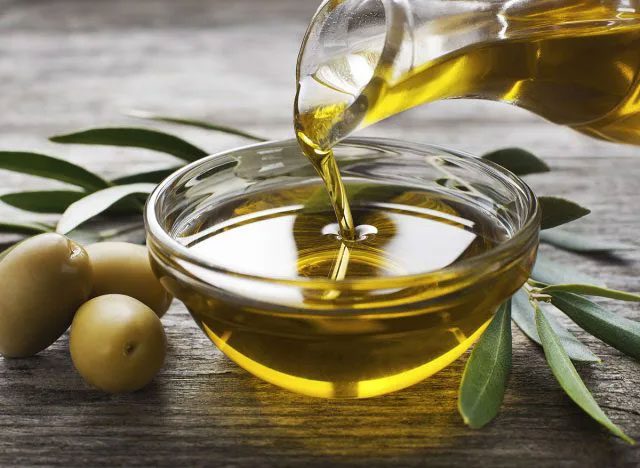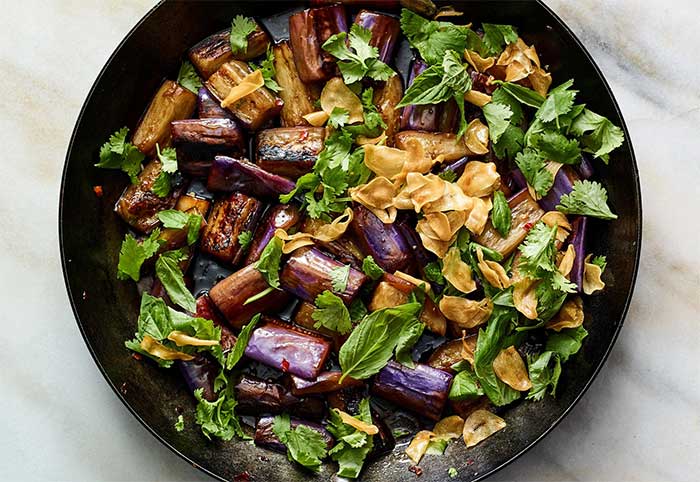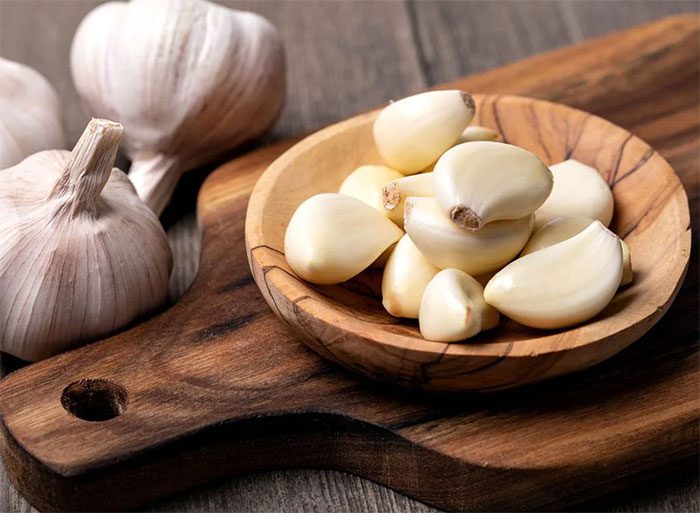Cardiovascular disease is one of the leading reasons for a decline in quality of life and mortality. Cardiovascular disease is also becoming increasingly prevalent among younger individuals. Nourishing blood vessels or consuming foods that are beneficial for vascular health is one of the ways to help prevent the formation of blood clots, arterial plaque, and high blood lipids, thereby reducing the risk of cardiovascular diseases and other related health conditions.
Foods that are Good for Nourishing Blood Vessels
In general, to promote vascular health, it is essential to consume a diet rich in antioxidants, anti-inflammatory properties, as well as other vitamins and minerals such as vitamin K, vitamin B6, vitamin B12, folic acid, and L-citrulline amino acids…
1. Salmon
Salmon is rich in omega-3 unsaturated fatty acids, which play a crucial role in maintaining the health and elasticity of blood vessels as well as heart health due to its powerful anti-inflammatory effects. This helps reduce triglycerides, lower blood pressure, and decrease the risk of blood clots by inhibiting platelet aggregation in the blood, thereby reducing sudden cardiac death due to cardiovascular diseases. Additionally, these fats also help stimulate the release of nitric oxide, which widens blood vessels and improves blood circulation.
You can eat salmon twice a week with easy-to-make dishes such as salmon salad, grilled salmon, pan-seared salmon, or salmon soup. According to Healthline, a 2022 study showed that consuming 2-3 grams of omega-3 fatty acids daily can help lower both systolic and diastolic blood pressure. Higher doses can further reduce the risk of cardiovascular disease in high-risk groups.
2. Olive Oil
When consumed in moderation, olive oil is a source of monounsaturated fatty acids that help reduce bad cholesterol and triglycerides, lower the risk of plaque formation in blood vessels, and keep arteries clear.
Olive oil is also rich in antioxidants such as polyphenols including hydroxytyrosol and oleuropein, which help combat harmful free radicals, contributing to the prevention of atherosclerosis and blood vessel blockage.

Olive oil is also rich in antioxidants such as polyphenols including hydroxytyrosol and oleuropein (Image: Internet)
Vitamin E, potassium, and other anti-inflammatory substances found in olive oil also contribute to maintaining vascular health by reducing inflammation and controlling blood pressure, balancing electrolytes in the body.
3. Oats
Oats are particularly high in antioxidants, especially in their whole form, along with other beneficial plant compounds known as polyphenols. Among them, a unique group of antioxidants found in oats is avenanthramide (almost exclusive to oats), which helps increase nitric oxide production, leading to expanded blood vessels and improved blood circulation.
The beta-glucan fiber in oats reduces both total cholesterol and bad cholesterol levels in the bloodstream, protecting blood vessels from oxidation and reducing inflammation.
4. Corn
Corn is a rich source of nutrients, especially antioxidants such as vitamin C, vitamin E, carotenoids, and anti-inflammatory compounds like polyphenols and flavonoids that can help improve vascular health.
Corn is high in folic acid, potassium, and fiber, all of which help reduce the risk of vascular diseases by lowering homocysteine levels in the blood, reducing strain on blood vessel walls, and improving the contractility (elasticity) of blood vessels, thus enhancing cardiovascular health.
5. Eggplant
Eggplant contains a range of antioxidants, including anthocyanins that help reduce the risk of plaque formation in blood vessels that leads to atherosclerosis and arterial blockage. Chlorogenic acid found in eggplant is an antioxidant that not only helps prevent cancer but also has antibacterial and antiviral properties and helps lower bad cholesterol levels.
Additionally, the fiber, potassium, vitamin C, and vitamin B6 in eggplant all support and enhance cardiovascular health, reducing the risk of atherosclerosis, according to a 2013 study on NCBI.

Eggplant is also very rich in vitamin P, which helps soften blood vessels, enhance their elasticity, reduce capillary permeability, and prevent capillary bleeding.
6. Broccoli
Broccoli is considered a “blood vessel cleaning” food due to its richness in flavonoids—helping not only to prevent inflammation but also to inhibit oxidation, prevent blood clotting, and reduce the risk of heart disease.
Other cruciferous vegetables like kale, spinach, and cabbage also contribute to improving vascular health.
7. Carrots
Carrots help eliminate toxins in the blood vessels indirectly due to the effects of antioxidants and vitamin A, which improve liver function and stimulate bile pigment production—an organ that helps remove toxins from the body. However, this detoxification requires the combined action of the liver, kidneys, and digestive system.
A recent study on NCBI showed that individuals with high levels of carotene in their blood had a lower likelihood of atherosclerosis, which helps reduce the risk of cardiovascular diseases. Carrots provide a significant amount of vitamin A, antioxidant beta-carotene, and vitamin C, all of which can help improve cardiovascular health.
8. Onions
Onions are an excellent source of flavonoid antioxidants, beneficial for cardiovascular health by helping your arteries and veins become more elastic as blood flow increases. Prostaglandin A found in onions can help dilate blood vessels, reduce blood viscosity, lower blood pressure, and also has lipid-lowering effects and prevents atherosclerosis.
Onions also possess anti-inflammatory properties that help reduce vascular inflammation, thereby effectively enhancing cardiovascular health.
9. Garlic
Garlic is renowned for its positive effects on the circulatory system and cardiovascular health due to sulfur compounds including allicin, which promote increased blood flow to tissues, relaxing blood vessels contributing to lower blood pressure.
According to Healthline, a study involving 42 individuals with coronary artery disease found that consuming a garlic powder capsule containing 1,200 mg of allicin twice daily for three months improved blood flow through the arm arteries by up to 50% compared to the placebo group.

Garlic is renowned for its positive effects on the circulatory system and cardiovascular health. (Image: Internet).
In addition to the foods mentioned above, several other foods can also help increase blood flow and circulation, such as pomegranates, cinnamon, beets, turmeric, leafy greens, citrus fruits, tomatoes, berries, and ginger…
In summary, besides consuming foods that are good for blood vessels, to better protect vascular health, you need to maintain a proper rest and exercise regimen; limit the intake of foods high in saturated fatty acids that increase bad cholesterol levels in the blood and promote atherosclerosis.


















































